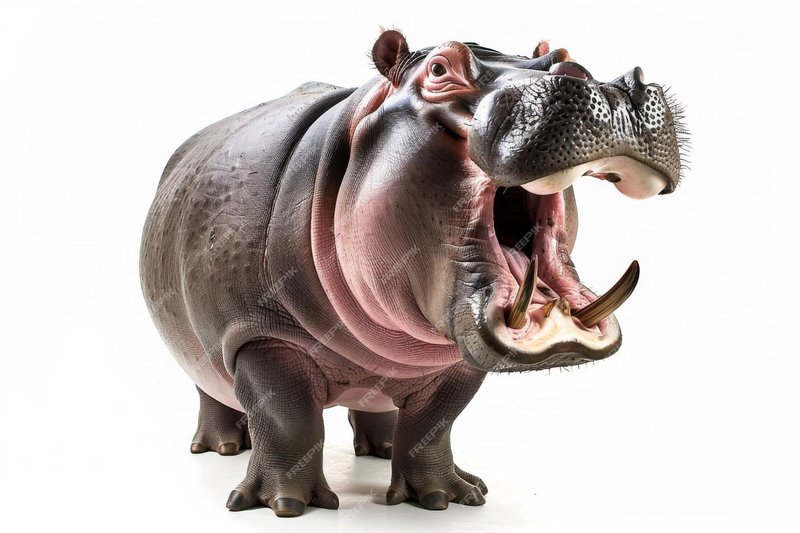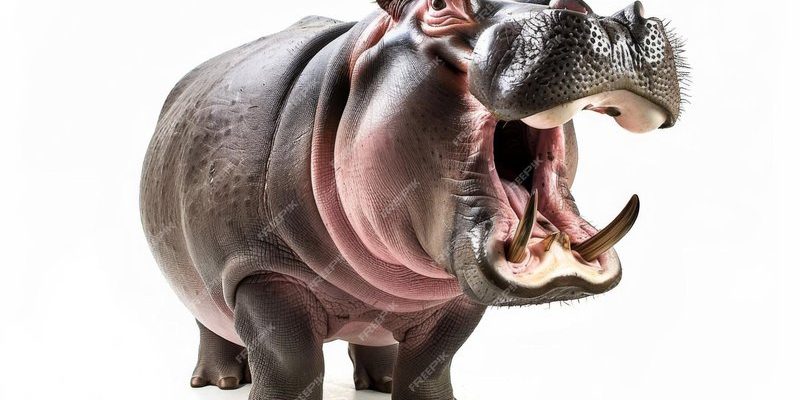
Have you ever heard the phrase “hippo in the room” to describe a big issue everyone avoids? It’s intriguing to see how an animal can seep into our language and symbolism, representing both strength and vulnerability. This article dives into how the hippopotamus is portrayed in different cultures and folklore, showcasing its rich history and significant role in human storytelling.
The Hippo in African Folklore
In Africa, the hippopotamus is often seen as a powerful and protective figure. Many African tribes view the hippo as a guardian of the rivers, symbolizing strength and resilience. For example, in some traditions, the river’s depths hold stories of hippos helping communities by providing life-giving water and resources.
One fascinating story comes from the Nile, where the ancient Egyptians revered the hippo goddess *Taweret*. She was often depicted with a hippo’s head and was believed to protect pregnant women and children. The image of Taweret reminds us of how cultures interpret animals in ways that resonate with their daily lives and challenges. Honestly, it’s amazing how hippos symbolize nurturing and safety while also embodying the fierce power of water.
But the hippo is not only a protector. In various folk tales, they can sometimes be portrayed as cunning tricksters. These stories remind audiences that strength can come in different forms, and intelligence is just as valuable as sheer power. This duality in representation enriches the folklore, showcasing how complex these creatures—and, by extension, the cultures that created these stories—truly are.
Hippos in Ancient Civilizations
Let’s hop back to ancient civilizations, particularly in Egyptian culture. The hippo was more than just a resident of the Nile; it was seen as a symbol of chaos and danger. Because of their powerful jaws and aggressive nature, hippos represented the uncontrollable forces of nature.
The ancient Egyptians created art that often featured hippos, sometimes hunting them to symbolize triumph over chaos. In fact, the hunting scenes depicted on tomb walls tell us a lot about how the Egyptians viewed their relationship with nature and the significance of the hippo in their society. It’s almost like they were saying, “We can conquer these great beasts, but we must also respect their power.”
This portrayal both celebrates and warns against the might of nature. It also shows how hippos were intertwined with life and death, making them central figures in the Egyptian belief system. You might be wondering how such a creature can symbolize both protection and peril, but that’s the beauty of mythology—it captures the complexities of life, allowing us to understand our fears and aspirations through these larger-than-life figures.
Modern Representations in Art and Literature
Moving into the modern world, hippos have found their way into various forms of art and literature. They appear in children’s books, animated films, and even social media memes, often portrayed as lovable characters. This friendly image contrasts sharply with the hippo’s fierce reputation in folklore.
Take the popular children’s book series *Hippopotamus* by Johnathan Allen, where the hippo is depicted as a caring friend who goes on adventures and helps others. This shift in representation illustrates how we can embrace these mighty animals as symbols of friendship and joy, rather than just fear and chaos.
On the flip side, some contemporary artists draw on the hippo’s menacing aspects to comment on environmental issues, highlighting how the real-life threats these animals face mirror broader concerns about humanity’s impact on nature. This duality in modern portrayals invites viewers to reflect on their perceptions of the hippo—are they a friend, a foe, or something more complicated? It’s a powerful conversation starter about how we engage with animals and nature today.
Symbolism in Different Cultures
The hippo’s cultural significance extends far beyond Africa and Egypt. In some Asian cultures, for example, the hippo can symbolize wealth and prosperity. In China, the hippo is sometimes associated with good fortune due to its association with water, which signifies abundance and life.
Interestingly, the way hippos are perceived can also vary within cultures. In some regions, they’re seen as clumsy and lazy, while in others, they embody strength and protection. This contrast reveals how societal values and experiences shape the stories and symbolism surrounding animals. It’s a reminder that culture is a living, breathing thing, ever influenced by geography and social dynamics.
Moreover, hippos in pop culture often display this blend of traits. Whether they’re gracing children’s cartoons or being the subject of nature documentaries, they continue to capture our fascination, prompting deeper discussions about how we interact with the natural world. Have you ever stopped to think about how your perception of animals might reflect your own values and experiences?
Folklore Lessons and Morals
Stories involving hippos often come with valuable lessons about balance and respect. For instance, many African tales highlight the importance of working together to solve problems, using the hippo as a figure of collaboration and teamwork.
In these tales, the hippo often plays a role in bringing animals together to face common challenges, demonstrating that strength lies not just in individual might but in community bonds. This moral resonates deeply with the values of many cultures, reminding us that even the most powerful creatures have a role in fostering unity.
These stories can serve as allegories for human relationships, illustrating that even when we feel strong or powerful, we must remain connected to those around us. You might find it fascinating how animals can convey such intricate messages, showing that storytelling transcends species and speaks to our shared humanity.
The Hippo’s Impact on Environmental Awareness
In recent years, the hippopotamus has also become a symbol in the fight for wildlife conservation. As this magnificent creature faces threats from habitat loss and poaching, its representation in culture and folklore has sparked conversations about the importance of preserving our natural world.
Documentaries and social media campaigns often feature hippos to raise awareness about climate change and the importance of protecting vulnerable species. This connection between cultural representation and environmental action highlights how stories can inspire us to take action, turning our fascination with hippos into a call for conservation.
As more people learn about the challenges hippos face, the animal’s image evolves from a character in a story to a symbol of resilience and the pressing need for environmental responsibility. Here’s the thing: when cultures rally behind a symbol like the hippo, it has the potential to unite people for a common cause—one that ultimately benefits all living beings.
The hippopotamus is more than just a remarkable creature; it’s a powerful symbol that flows through our culture and folklore. From ancient civilizations venerating this animal as a deity to modern portrayals that celebrate its charm, hippos remind us of the complex relationship we share with nature—a relationship filled with admiration, fear, and a desire for understanding.
As we explore how the hippo is represented across cultures, we uncover valuable lessons about strength, community, and environmental responsibility. These stories invite us to appreciate the beauty and significance of our world, encouraging us to respect and protect the incredible creatures that share it with us.
So next time you hear about a hippo—whether in a story, a film, or even during a casual conversation—consider all the layers of meaning they carry. They are not just animals; they are a bridge to discussing the values and challenges we face as a society. The hippo, with its gentle giant persona, continues to inspire us to look deeper, think harder, and act with purpose.

